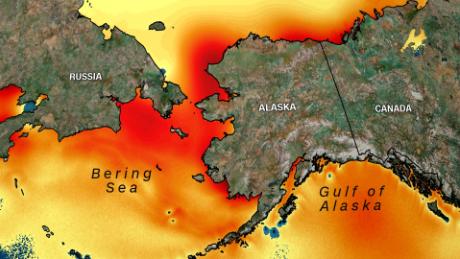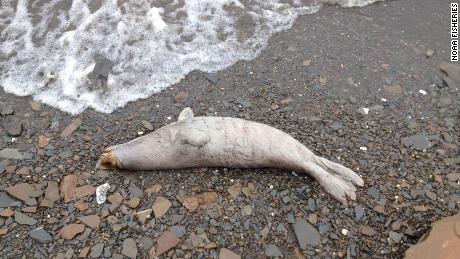The temperature at the airportwas 90 degrees Thursday, besting June 14, 1969, for the highest mark ever recorded in the city, according to the National Weather Service.Across south Alaska, the mercury was expected to rise to record or near-record levels on the nation's 243rd birthday and continue at above-average levels through next week, the National Weather Service reports. Last month was the warmest June on record, with an average temperature of 60.5 degrees — 5.3 above average, according to the National Weather Service Anchorage, whose records for this location date to 1954 (66 total Junes). June marks the 16th consecutive month in which average temperatures ranged above normal. "All 30 days in June had above average temperatures," the service noted.Meanwhile, a large upper-level high pressure system is building over Alaska and will draw warm air from the south and blow winds offshore — in the opposite direction of "sea breezes," which bring cooler air from over the ocean to the land, the Weather Service predicts. As the high pressure shifts out of southern Alaska, cooling sea breezes will return on Friday afternoon, allowing temperatures to drop slightly, at least along the coast. Over the weekend and into next week, thermometer readings are expected to fall in the region, even if temperatures remain above average.June was the driest on record, with 0.06 inches of rain. (Normal monthly precipitation in June is 0.97 inches, so June received just 6% of its normal precipitation.) This ends a two-month streak with above-average precipitation, the weather service noted. The state remains ripe for wildfires, spurring the Alaska State Fire Marshal's Office to ban the sale and use of fireworks in certain areas, including Fairbanks North Star borough, the Kenai Peninsula Borough, the Matanuska-Susitna Borough and the Northern Panhandle.
As the high pressure shifts out of southern Alaska, cooling sea breezes will return on Friday afternoon, allowing temperatures to drop slightly, at least along the coast. Over the weekend and into next week, thermometer readings are expected to fall in the region, even if temperatures remain above average.June was the driest on record, with 0.06 inches of rain. (Normal monthly precipitation in June is 0.97 inches, so June received just 6% of its normal precipitation.) This ends a two-month streak with above-average precipitation, the weather service noted. The state remains ripe for wildfires, spurring the Alaska State Fire Marshal's Office to ban the sale and use of fireworks in certain areas, including Fairbanks North Star borough, the Kenai Peninsula Borough, the Matanuska-Susitna Borough and the Northern Panhandle.  Fires are a concern for Alaskans every year, but warm dry weather patterns caused heavy smoke and cloud from the Swan Lake Fire to affect the Anchorage area and Kenai Peninsula this week, according to the Alaska Interagency Coordination Center. Smoke from the smoldering fire, which was started by lightning on June 5 in the Kenai National Wildlife Refuge, will continue to affect the peninsula into the weekend, the center reports. Smoke contains many substances, including carbon dioxide and particulate matter, that may contribute to poor health. As of Independence Day, the Alaska Interagency Coordination Center estimates that wildfire has burned 634,000 Alaskan acres, which is significantly but not dramatically more than is typical for this point in the season, Rich Thoman, an Alaska climate specialist with theRead More – Source
Fires are a concern for Alaskans every year, but warm dry weather patterns caused heavy smoke and cloud from the Swan Lake Fire to affect the Anchorage area and Kenai Peninsula this week, according to the Alaska Interagency Coordination Center. Smoke from the smoldering fire, which was started by lightning on June 5 in the Kenai National Wildlife Refuge, will continue to affect the peninsula into the weekend, the center reports. Smoke contains many substances, including carbon dioxide and particulate matter, that may contribute to poor health. As of Independence Day, the Alaska Interagency Coordination Center estimates that wildfire has burned 634,000 Alaskan acres, which is significantly but not dramatically more than is typical for this point in the season, Rich Thoman, an Alaska climate specialist with theRead More – Source
[contf] [contfnew] 
CNN
[contfnewc] [contfnewc]






